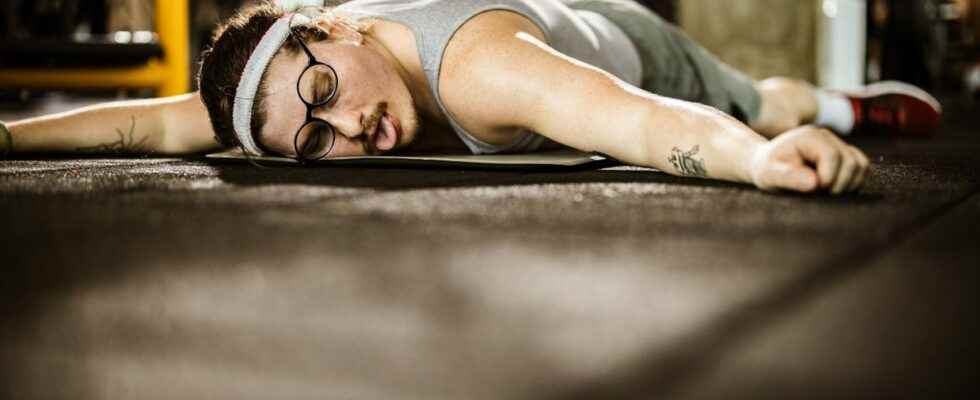Published on
Updated
Reading 1 min.
Headaches, nausea or even dizziness… Symptoms comparable to a “hangover” can appear after a sports session. To avoid suffering these inconveniences, some reflexes are to be adopted before and after the session.
“For your health, practice regular physical activity”. Surely you must know this slogan. The benefits of sport are many. It improves blood activity, helps to lose fat, maintains joints and bones, reduces stress and the risk of cancer…
But after too intense a session, certain symptoms close to those of a hangover can appear, such as exhaustion, nausea and headaches. According a survey carried out in the United States in May 2019, nearly one in four Americans has already suffered from it to the point of being unable to do another activity or go to their place of work.
Different reasons for this phenomenon
One of the reasons can be found in hormones. To stimulate muscle and tissue growth, the body produces growth hormone. After too intense an effort, it is possible that the production is too high, causing nausea.
Dehydration is also one of the possible origins. Not drinking enough can cause headaches, dizziness and accentuate the feeling of muscle cramps. Finally, too intense an effort can temporarily weaken the immune system. It is therefore less inclined to defend itself against viruses.
To limit these symptoms, it is advisable to take care of your diet, between one and three hours before exercise, so that the body has the necessary resources to draw on its reserves. Doing a rigorous warm-up as well as an adequate stretching session is also recommended, as is hydrating regularly to help the muscles recover.
